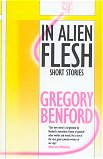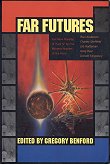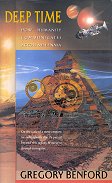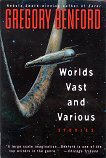Two centuries from now humanity has established a SETI Library on the moon
to decipher and interpret the many messages originating from alien societies.
The most intriguing messages are from complete artificial intelligences.
Rachel, a beginner Librarian, must talk to alien minds—who
have aggressive agendas of their own.
These conversations will open doors into strangeness beyond
imagination—and catapult Rachel into life threatening danger
in her quest for understanding.
Rachel Cohen wins a coveted assignment as a Librarian on the moon,
where she will work on deciphering alien messages encoded in various alien AIs.
She manages where others have not,
and ends up far beyond her original goals.
This is a bit of a mess.
There are lots of potentially fascinating ideas here,
but it’s very episodic, and those episodes don’t really gel together.
It feels like they are there to give a tour of the ideas and various exotic places.
The consequences of Rachel’s discoveries
don’t seem to form any coherent plot;
they are just one thing after another.
It also feels poorly edited, with some repetition,
and inconsistencies between episodes.
And there is several specific aspects that really bugged me.
For example, early on there is what is essentially a rape-by-AI scene,
but, no consequences.
Another example, more technical.
There is some sort of anomaly moving towards the solar system,
threatening the Earth.
It has got as far as the orbit of Jupiter, causing problems there.
One of Rachel’s discoveries allows a solution, which is implemented at Jupiter,
stopping the anomaly’s progress and protecting the inner solar system.
Maybe I missed something, but I don’t see how this works
when Jupiter has orbited to the other side of the solar system,
and is no longer between Earth and the source of the anomaly.
There are other examples, but I’ll stop there.
Disappointing.



















